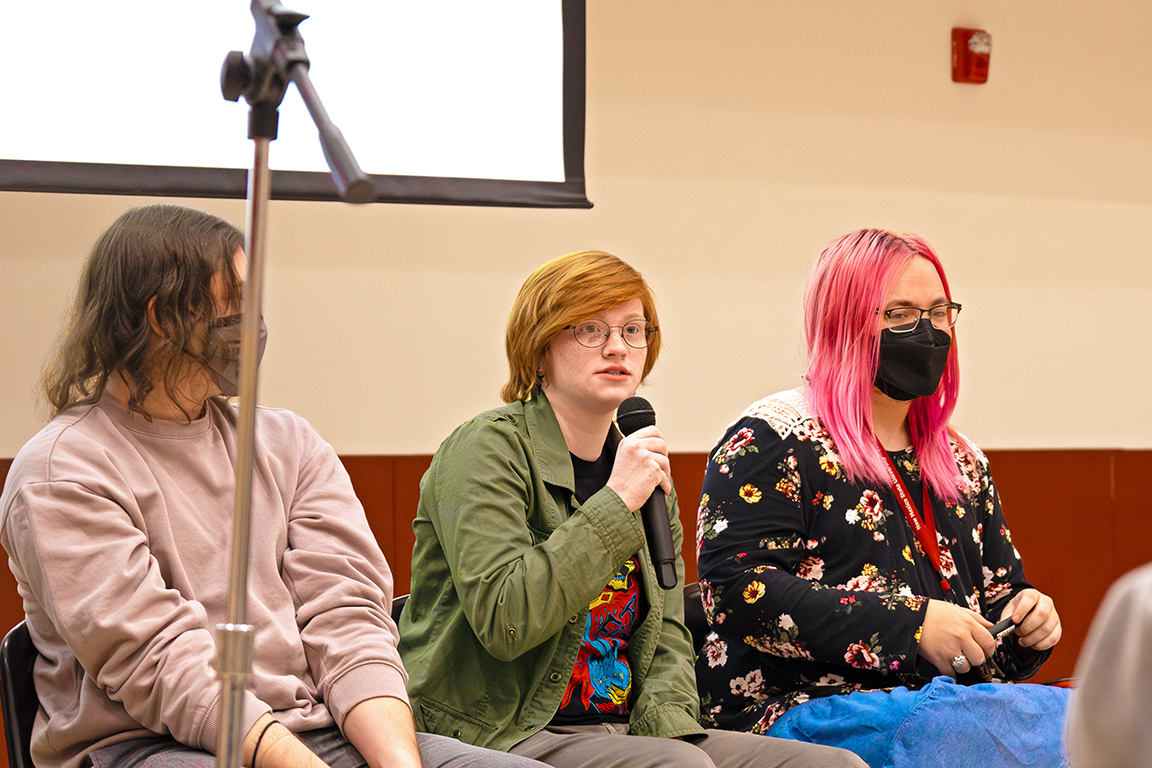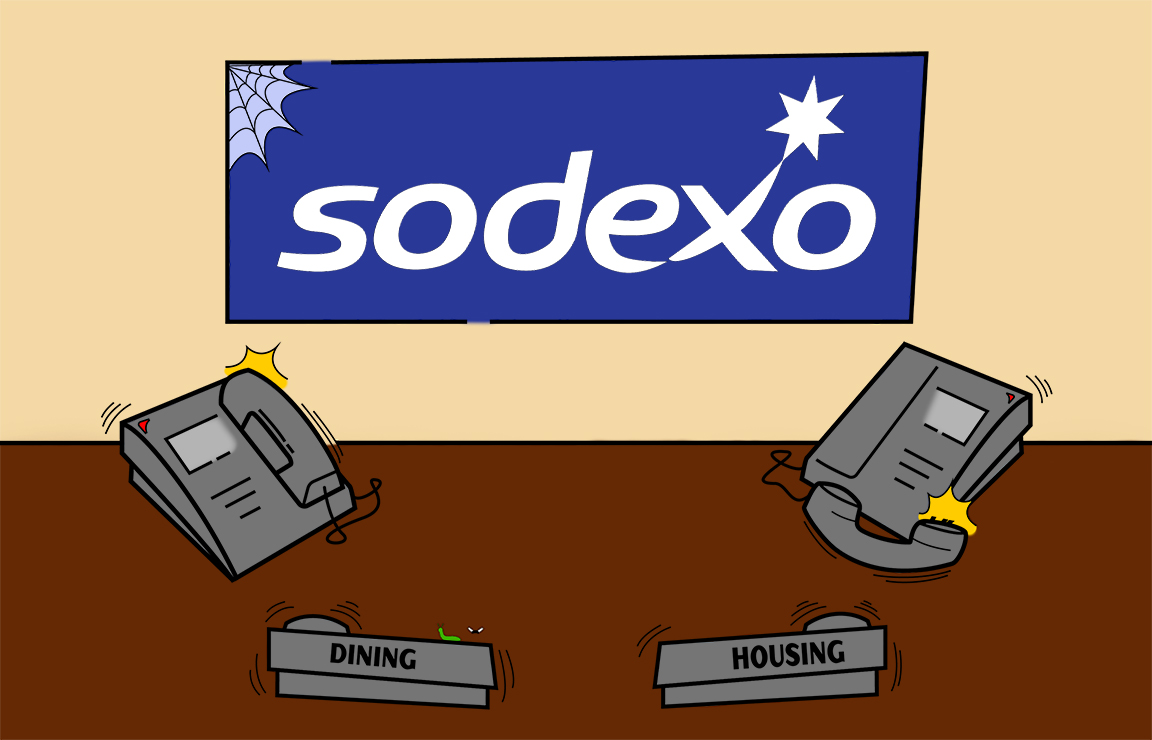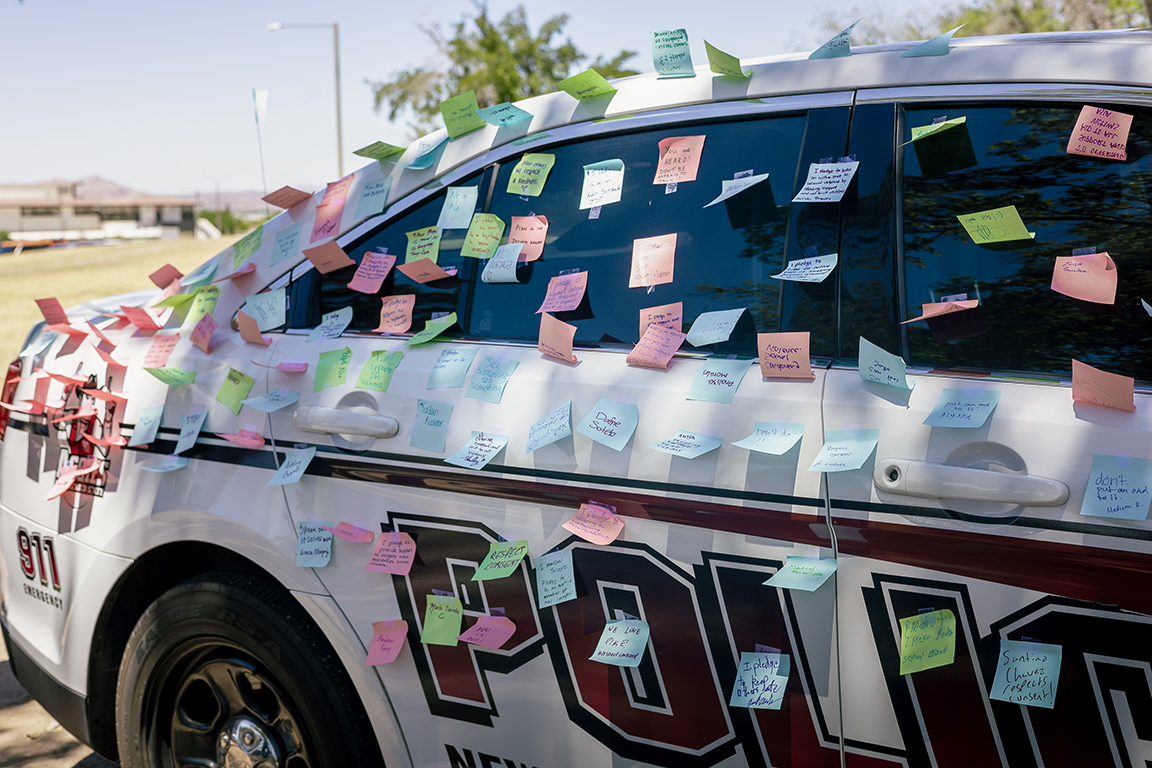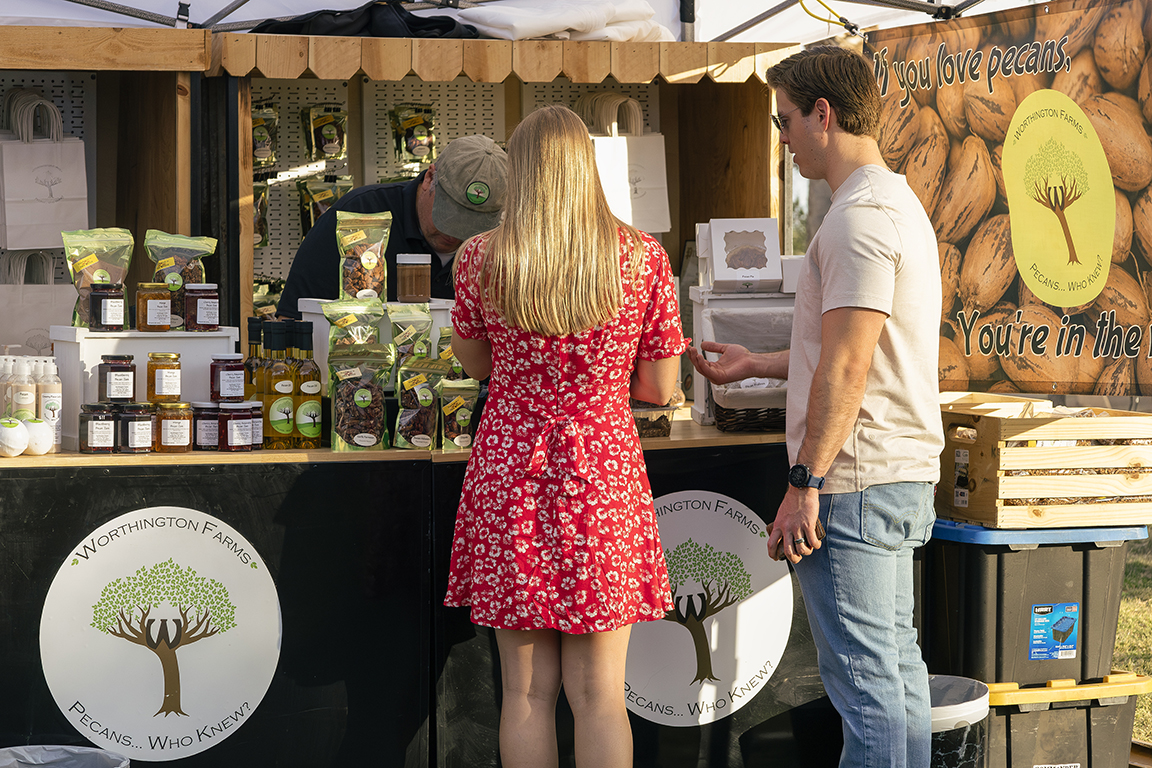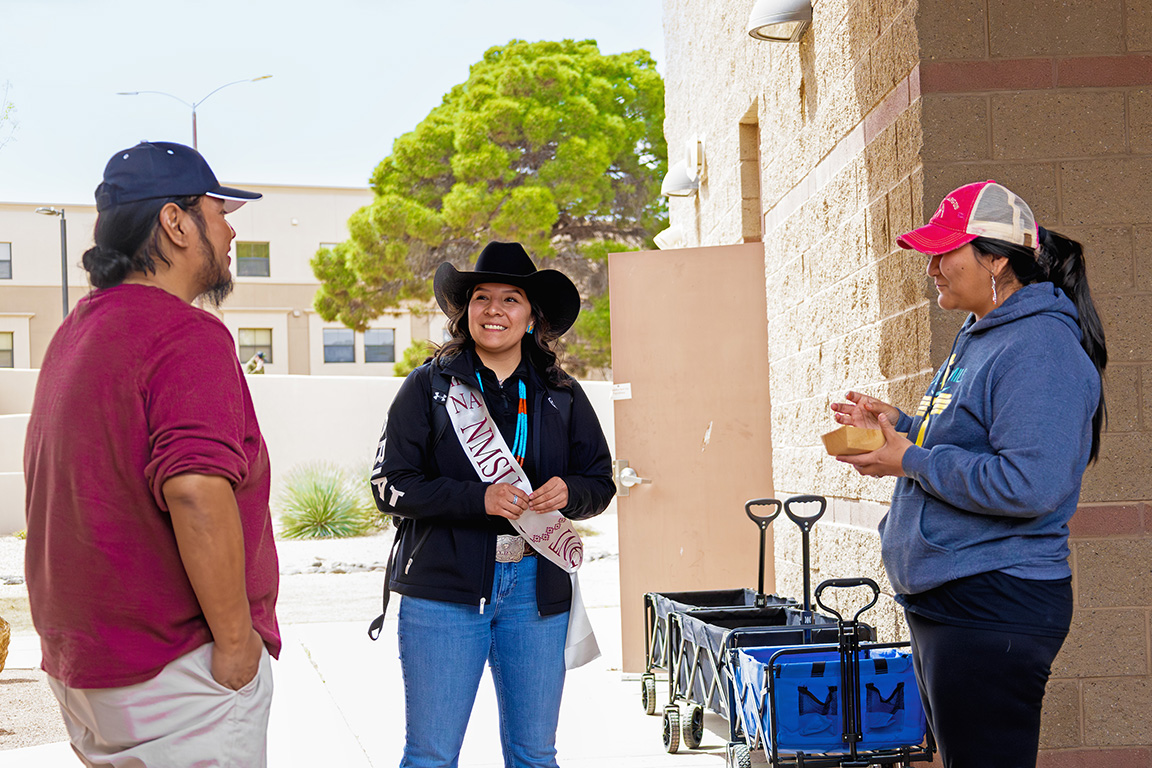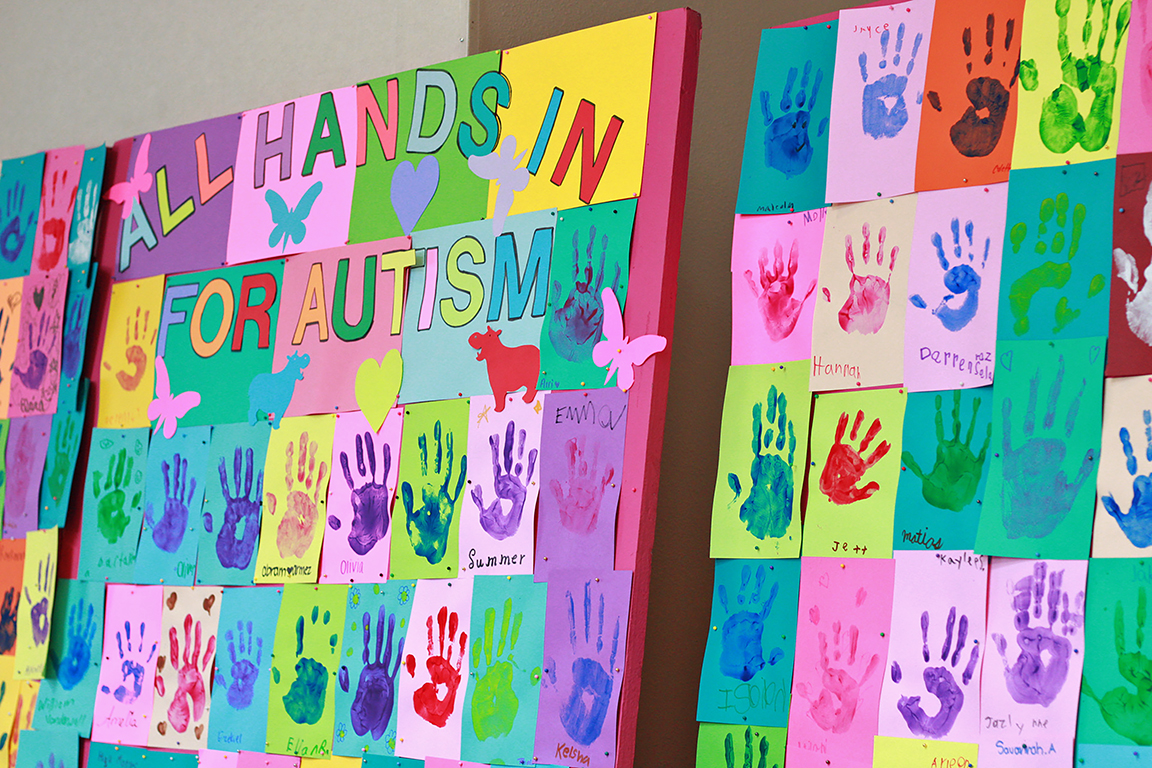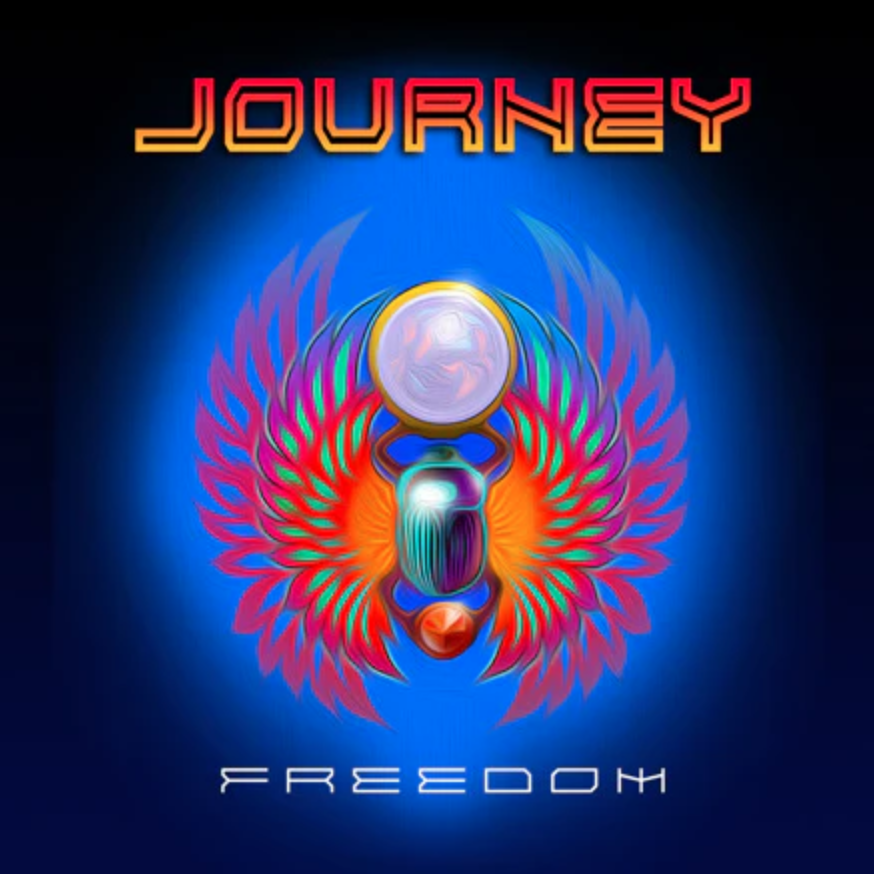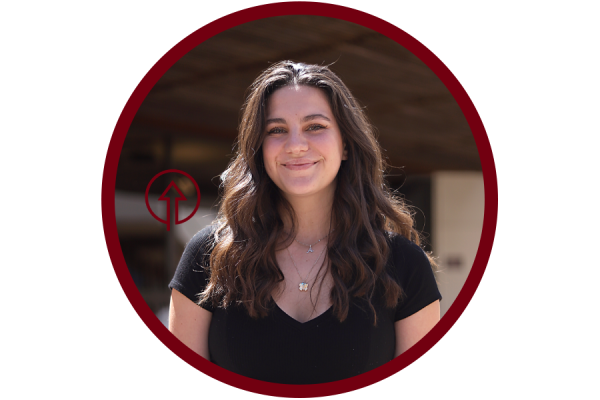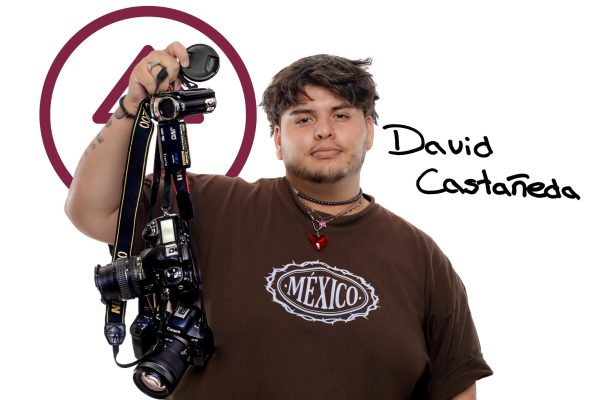“We’re here no matter if it’s Trans Visibility Day or not.”
Mar. 31 is International Transgender Day of Visibility, but New Mexico State University chose to celebrate early this year. On Wednesday, Mar. 24, LGBT+ Programs hosted four speakers from the university: Dr. Rio López (they/them), director of Chicano Programs; NMSU student Emmerson Cramer (they/them); NMSU student Parker Hemingway (they/them); and Lore Falls (they/them), Program Coordinator for LGBT+ Programs.
In addition to the panel, this year’s event included a presentation titled “Transgender Student Experience Research Results and Strategies for Inclusion” prior to the panel discussion. Co-hosted by Falls and LGBT+ Programs Director Dr. Sophia Sangwanthong, the PowerPoint discussed the results of several surveys conducted at NMSU. Many of the results were also cited as concerns by the panelists, from strained familial relationships to difficult medical care and discrimination from NMSU students. Perhaps the most frequent issue, though, is misgendering and the misuse of pronouns.
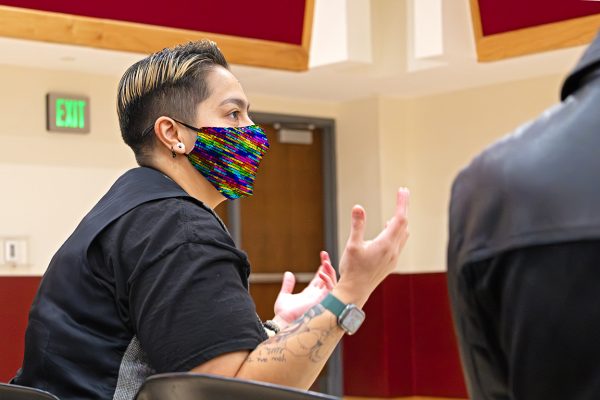
“It’s kind of just a constant thing,” Cramer said. “It’s something that I don’t think I ever get used to, but it becomes so kind of normative that it’s just like, ‘Oh, there it is again.’ And I think that sort of wears on you over time, it becomes kind of this eroding factor that just suppresses your sense of self — how am I actually going to be recognized as the way I want to be seen?”
According to the studies done by LGBT+ Programs, misgendering is a particular problem for nonbinary people, who say that it only takes one misgendering to ruin a situation or make it more anxiety-inducing. The solution? Make spaces more open and welcoming for everyone.
“Something that’s helped me is to have in place the option to share and then for the people facilitating that space to also be sharing their names and their pronouns,” Falls said. “When I come into a new space, and the person facilitating that space is introducing with a name and pronouns, it’s kind of this immediate, ‘Okay, people are at least thinking about this here’, or ‘Maybe I am fully safe and seen here’.”
Dr. Sangwanthong says there is an even simpler way to ensure that transgender and nonbinary individuals feel comfortable and seen — a “secret” trick of how to correctly use pronouns.
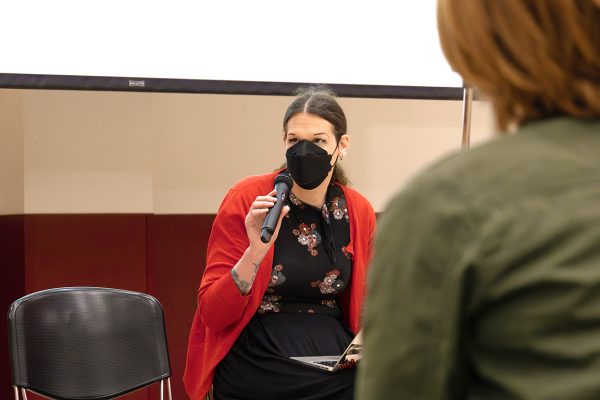
“Get to know them, treat them like people,” she said. “Don’t just say, ‘Well, oh, I’m supposed to say this. So I’m going to say that, I’m going to try to trick my brain.’ You’re not being inclusive of trans people. You’re just doing what you think you’re supposed to be doing and it doesn’t work, and that’s why you get them wrong so much.”
Lack of active listening and basic knowledge of transgender and nonbinary people was also frequently cited as a basis for many of the issues faced by the LGBT+ community.
“I think it always comes down to education when it comes to why discrimination and bigotry even exists,” Hemingway said. “There’s a lot of queer people, especially younger queer people, who don’t know any of our history. There’s quite a lot who think that, like, being nonbinary is a very new thing. I wish we put more into making sure that that history is told and doesn’t die, and that we understand where we came from so then we can know where to go from here.”
Recognition of LGBT+ history was emphasized multiple times, as many people believe that people being gay, transgender, or nonbinary are “modern” developments. However, evidence of the community’s presence is shown throughout history — even if it has not always been very visible. This lack of awareness is a large part of why Trans Day of Visibility is important.
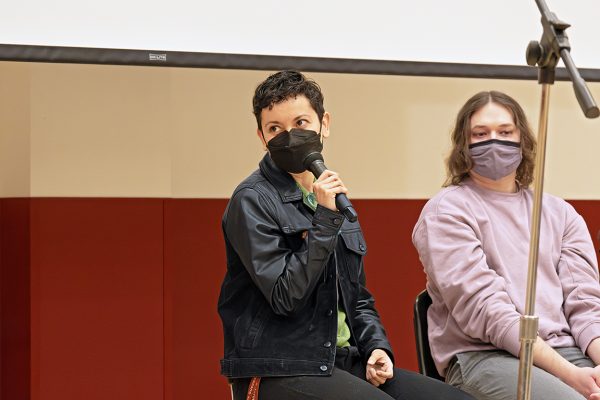
“We are here, and we have always been here,” López said. “It is important to recognize not only that trans people exist, but to actually carve out the spaces that are welcoming for us and for our students.”
At the end of the panel, the floor was opened for questions from the audience. One attendee questioned how the panelists and the LGBT+ community are able to keep going when what they face now is “so not okay”, as well as how they maintain hope moving forward.
“We have always resisted being exterminated,” Cramer said. “And I think that gives me hope in spite of everything that’s happening culturally right now, in spite of this current political moment. But I think also the relationships I have with other people in the community give me hope. Because we do support each other. We lift each other up… we affirm that we are people, and we are going to keep living.”
Moving forward, the panelists hope to see that supportive community continue to grow. They encouraged audience members – and everyone on campus – to continue to ask questions and utilize LGBT+ Programs as a resource to ensure that NMSU is a safe and inclusive space, not just on Mar. 31, but every day.


